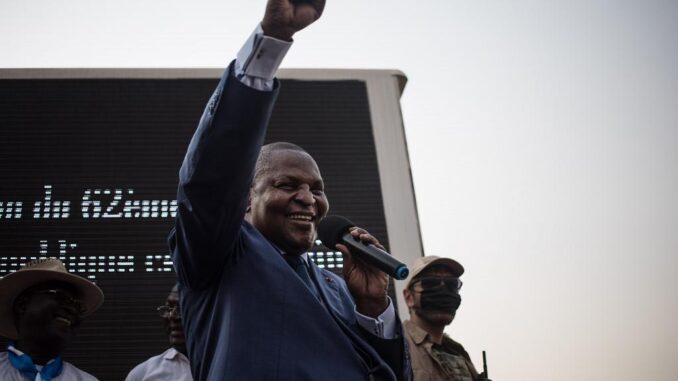
President Faustin-Archange Touadéra’s push for a controversial third term is intensifying political unrest in the Central African Republic (CAR), as foreign backers from Russia and Rwanda entrench their influence and opposition activists ramp up resistance.
On 4 April, hundreds rallied in Bangui to protest what they call an ‘anti-constitutional power grab’ following a 2023 referendum that removed presidential term limits. More demonstrations are planned this month, despite increasing repression. Two brothers of opposition candidate Henri-Marie Dondra were arrested in January for allegedly plotting to poison the president — an allegation critics say is politically motivated. Russia’s Wagner Group and Rwandan troops remain central to Touadéra’s strategy.
Wagner, led in CAR by Dmitri Sytyi, secures mineral-rich zones and provides personal protection for the president. Rwandan forces, deployed under UN peacekeeping mandates, focus on stabilizing urban areas and expanding economic ventures. Despite early turf tensions, both foreign partners now operate in coordinated zones. While Wagner trades combat risks for mineral access, Rwanda exercises soft power through infrastructure, business, and symbolism — such as organizing genocide memorials and investing in local industries.
Meanwhile, the CAR has postponed long-awaited local elections — last held nearly 40 years ago — until December. Originally scheduled for August, officials now plan to hold them alongside legislative and presidential polls, raising concerns about logistical overload and democratic accountability in a nation already grappling with political instability. Though Touadéra has not formally declared his candidacy, most observers say his re-election in December is virtually guaranteed. But critics like opposition leader Martin Ziguélé warn, “This fight is a fight for the republic — a fight for respect for the Central African.”
